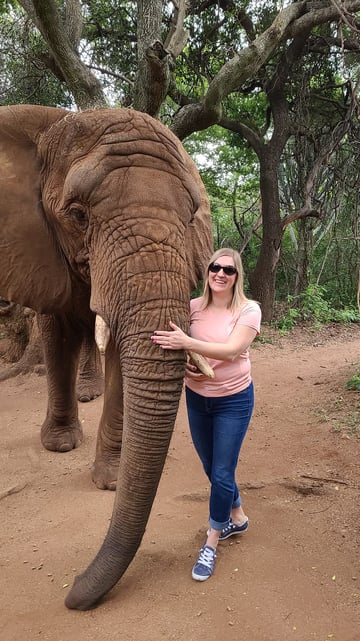
Dr. Sarah Douglas was selected as a Fulbright Scholar where she will implement training for professionals on alternative communication methods to support children with developmental disabilities. Dr. Douglas, a professor in the MSU Department of Human Development and Family Studies, will be working with the Centre for Augmentative and Alternative Communication at the University of Pretoria in South Africa to culturally adapt interventions that will help professionals better support children who have limited speech. This may include children with autism, Down syndrome, or other developmental disabilities who are often supported by a wide range of educators and therapists, but these professionals aren’t always trained in the ways to support their unique communication styles. “Communication is fundamental to all humans,” Dr. Douglas said. “For young children without speech we need partners who know how to best support their use of augmentative or alternative communication – AAC. This includes apps on mobile devices, paper-based symbol systems, or dedicated speech generating devices. These tools help support children, but they only work well when communication partners also know how to support their use. It is especially important that teachers know how to best support students who use AAC.”
Dr. Douglas has created several interventions in the United States, so she will be working with local experts and professionals to take those interventions and make them relevant and available in South Africa and other parts of Africa.
The Fulbright award will fund her work in South Africa for 8 months to conduct a cultural adaptation to a communication partner training program and will provide funding that is essential to the project itself. The project involves several steps. First, Dr. Douglas will conduct a focus group with educators to inform the cultural adaptations to the training intervention. Next, she will conduct a study to measure the effects of culturally adapted intervention on in-service educators. Finally, she will create an online training program for pre-service educators using an intelligent tutoring system.
“It is essential that the tools we are able to develop to support children with disabilities are also available in low-resource settings,” she said. “Adapting my interventions for the South African context is a first step in making interventions of this type available to educators across Africa and giving children who use AAC in Africa better opportunities to develop meaningful communication.”